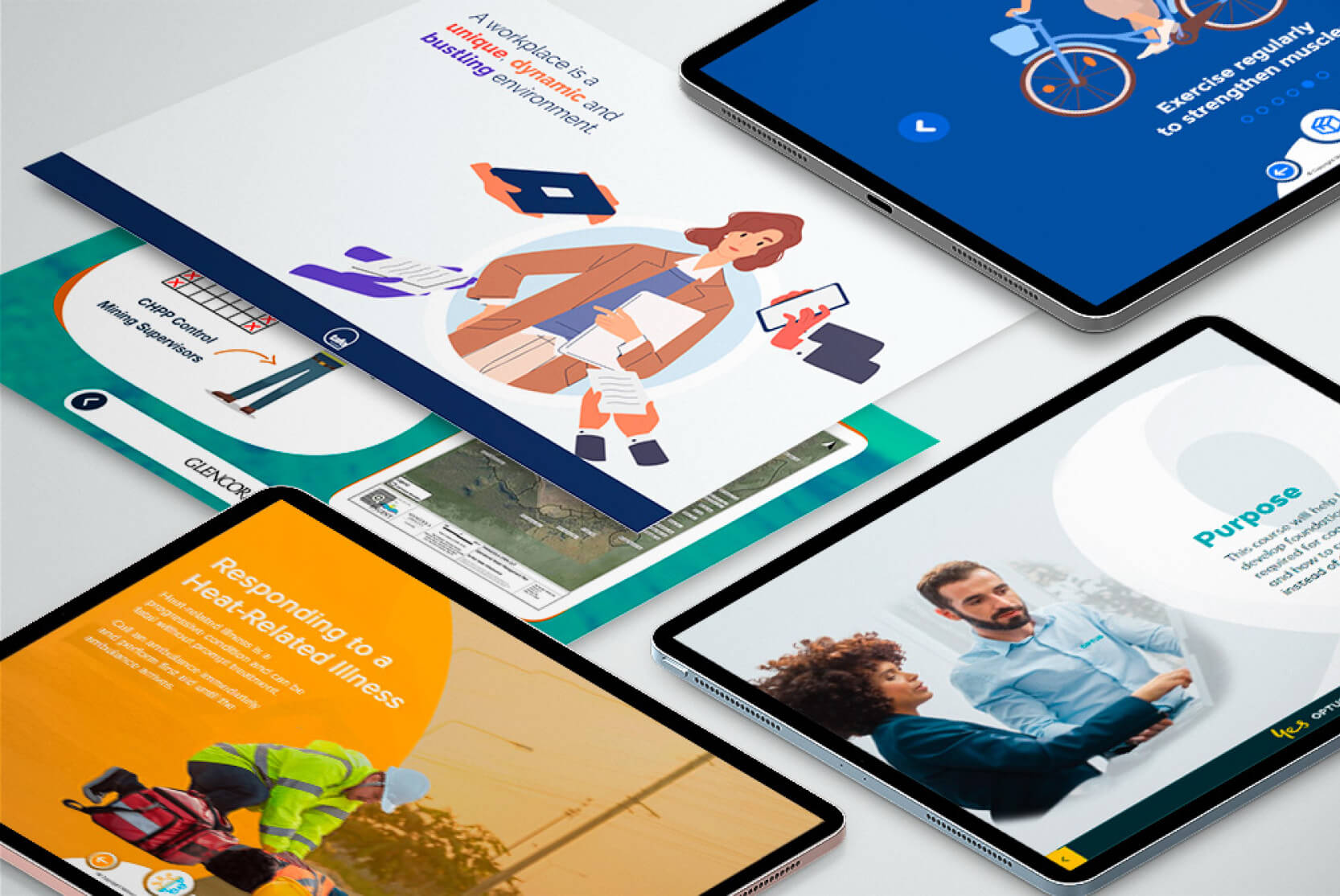eLearning in Australia is growing rapidly as businesses and educational institutions embrace it as a flexible and cost-effective training solution. With advancing technology, organisations see online learning as a way to improve workforce skills and enhance education. Its convenience and accessibility are reshaping how training is delivered. Whether for corporate compliance, professional development, or higher education, eLearning is transforming learning in Australia.
Key Features of eLearning in Australia
eLearning’s success in Australia comes from features that make training accessible and impactful:
Flexible Learning: Employees and students can learn anytime, anywhere. This is crucial in Australia, where remote areas make in-person training difficult.
Tech Integration: Advanced tools like artificial intelligence (AI), virtual reality (VR), and augmented reality (AR) make learning more interactive and engaging.
Custom Training Solutions: Many businesses prefer tailored eLearning courses that align with industry needs, compliance requirements, and company culture.
Mobile Accessibility: eLearning platforms work across devices, ensuring learners can access training on phones, tablets, and laptops.
Data-Driven Insights: Learning management systems (LMS) provide analytics that help organisations track progress and improve training programs.
Why eLearning in Australia is Gaining Momentum

1. Remote Learning Demand
The shift to remote work has increased demand for online training. Businesses need learning solutions that work from any location. eLearning enables employees in rural areas to access the same training as those in major cities. With vast distances and more remote jobs, online learning has become essential.
2. Cost-Effectiveness
Traditional training involves travel, accommodation, and venue rental, leading to high costs. eLearning eliminates these expenses. Businesses save on logistics, printed materials, and trainer fees. Over time, these savings make online learning a cost-effective option, especially for large-scale training.

3. Industry-Specific Solutions
Custom eLearning meets the unique needs of industries like mining, construction, and telecommunications. Whether covering compliance, safety, or technical training, tailored courses align with real-world job demands. This ensures employees receive relevant training that directly supports business goals.
4. Upskilling and Reskilling Opportunities
As industries evolve, employees must update their skills. eLearning delivers flexible training that helps staff reskill and upskill. Workers can master new technologies, leadership skills, or regulatory updates without disrupting their schedules. This approach keeps teams competitive and prepared for future challenges.


5. Access to Remote Communities
Australia’s remote areas lack access to traditional training. eLearning bridges this gap by offering the same high-quality education available in cities. Businesses can train employees regardless of location, ensuring equal learning opportunities across the country.
The impact of eLearning extends beyond businesses. Educational institutions are also benefiting from digital learning, making courses accessible to students who might otherwise struggle with travel and scheduling constraints. As universities and schools expand their online offerings, more learners can gain qualifications without relocating.
The Future of eLearning in Australia
The future of eLearning looks promising. Advancements in AI, machine learning, and VR will make learning even more engaging and interactive. Personalised training paths will cater to individual needs, improving retention and knowledge application.
As businesses and educators focus on lifelong learning, the demand for flexible and effective training solutions will grow. More organisations will invest in digital learning to ensure employees stay ahead in an evolving job market. With its benefits in cost, scalability, and accessibility, eLearning will continue shaping Australia’s education and corporate training landscape.
Emerging Trends in eLearning for Australian Businesses
Several trends are shaping the future of eLearning. Businesses looking to stay ahead should take note:
Microlearning: Short, focused lessons help employees absorb information quickly. This method fits well into busy schedules and improves retention.
AI-Powered Personalisation: AI adapts training to individual learners, ensuring content meets their needs and skill levels.
Social Learning: Platforms enable peer discussions, content sharing, and teamwork, making training more collaborative.
Gamification: Elements like points, badges, and leaderboards increase motivation and engagement, making learning enjoyable.
Virtual and Augmented Reality: Immersive experiences allow learners to practice real-world scenarios in a risk-free environment.

Simply eLearning: Your Partner in Custom Training
At Simply eLearning, we design training solutions that align with your business needs. Our team combines instructional design, creativity, and cutting-edge technology to develop engaging and effective courses. Whether you need compliance training for mining teams or leadership programs for telecommunications professionals, we create learning experiences that drive results.
Conclusion
eLearning in Australia offers numerous advantages for businesses and learners alike. The key benefits include:
- Flexibility: Learners can access training anytime and anywhere, fitting education into their busy schedules.
- Cost-Effectiveness: eLearning reduces the costs of traditional training methods, including travel and venue fees.
- Custom Solutions: Tailored eLearning programmes meet the specific needs of various industries.
- Upskilling and Reskilling: eLearning provides a way to ensure employees stay competitive and skilled.
- Access for Remote Learners: eLearning ensures that learners in rural and remote areas have equal access to quality training.
As businesses continue to embrace eLearning in Australia, the opportunities for improved workforce training and development are boundless. Ready to enhance your training programme? Contact Simply eLearning today to learn how we can help you create a custom eLearning solution for your business!

